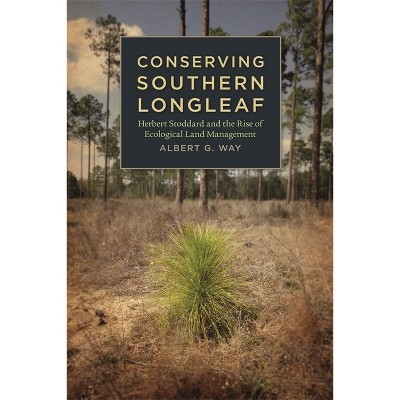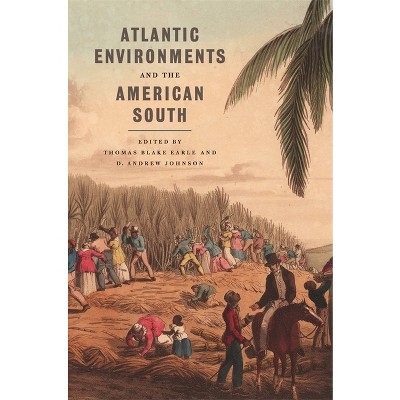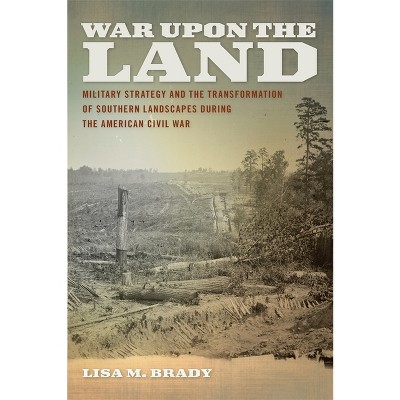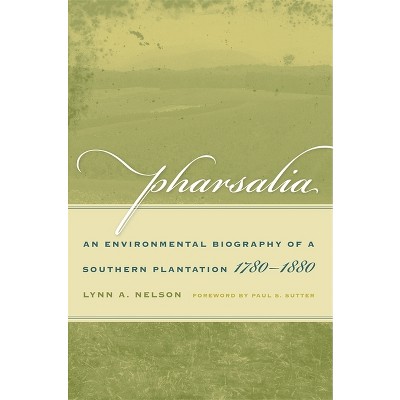Race and the Greening of Atlanta - (Environmental History and the American South) by Christopher C Sellers

About this item
Highlights
- Race and the Greening of Atlanta turns an environmental lens on Atlanta's ascent to thriving capital of the Sunbelt over the twentieth century.
- About the Author: CHRISTOPHER C. SELLERS is professor of history at Stony Brook University.
- 442 Pages
- Political Science, Public Policy
- Series Name: Environmental History and the American South
Description
About the Book
"Race and the Greening of Atlanta turns an environmental lens on Atlanta's ascent to thriving capital of the Sunbelt over the twentieth century. Uniquely wide ranging in scale, from the city's variegated neighborhoods up to its place in regional and national political economies, this book reinterprets the fall of Jim Crow as a democratization born of two metropolitan movements: a well-known one for civil rights and a lesser known one on behalf of 'the environment.' Arising out of Atlanta's Black and white middle classes respectively, both movements owed much to New Deal capitalism's undermining of concentrated wealth and power, if not racial segregation, in the Jim Crow South. Placing these two movements on the same historical page, Christopher C. Sellers spotlights those environmental inequities, ideals, and provocations that catalyzed their divergent political projects. He then follows the intermittent, sometimes vital alliances they struck as civil rights activists tackled poverty, as a new environmental state arose, and as Black politicians began winning elections. Into the 1980s, as a wealth-concentrating style of capitalism returned to the city and Atlanta became a national 'poster child' for sprawl, the seedbeds spread both for a national environmental justice movement and for an influential new style of antistatism. Sellers contends that this new conservativism, sweeping the South with an antienvironmentalism and budding white nationalism that echoed the region's Jim Crow past, once again challenged the democracy Atlantans had achieved"--Book Synopsis
Race and the Greening of Atlanta turns an environmental lens on Atlanta's ascent to thriving capital of the Sunbelt over the twentieth century. Uniquely wide ranging in scale, from the city's variegated neighborhoods up to its place in regional and national political economies, this book reinterprets the fall of Jim Crow as a democratization born of two metropolitan movements: a well-known one for civil rights and a lesser known one on behalf of "the environment." Arising out of Atlanta's Black and white middle classes respectively, both movements owed much to New Deal capitalism's undermining of concentrated wealth and power, if not racial segregation, in the Jim Crow South.
Placing these two movements on the same historical page, Christopher C. Sellers spotlights those environmental inequities, ideals, and provocations that catalyzed their divergent political projects. He then follows the intermittent, sometimes vital alliances they struck as civil rights activists tackled poverty, as a new environmental state arose, and as Black politicians began winning elections. Into the 1980s, as a wealth-concentrating style of capitalism returned to the city and Atlanta became a national "poster child" for sprawl, the seedbeds spread both for a national environmental justice movement and for an influential new style of antistatism. Sellers contends that this new conservativism, sweeping the South with an antienvironmentalism and budding white nationalism that echoed the region's Jim Crow past, once again challenged the democracy Atlantans had achieved.Review Quotes
Race and the Greening of Atlanta meshes environmental history with social and political history in creative and compelling ways. Sellers' ambitious periodization and decision to extend his study deep into recent history gives the book staying power in a discipline constantly playing catch-up with the present.
--Jason Morgan Ward "author of Hanging Bridge: Racial Violence and America's Civil Rights Century"Christopher C. Sellers' history of metropolitan Atlanta does a masterful job interweaving the histories of suburban environmentalism and civil rights activism. The result is one of the best urban environmental histories in recent years.--Andrew C. Baker "author of Bulldozer Revolutions: A Rural History of the Metropolitan South"
About the Author
CHRISTOPHER C. SELLERS is professor of history at Stony Brook University. He is the author or coauthor of Hazards of the Job and Crabgrass Crucible and coeditor of Dangerous Trade and Landscapes of Exposure, among other publications. He is the recipient of numerous awards, grants, and fellowships, including those from the National Science Foundation, the National Humanities Center, and the National Library of Medicine. He lives in Stony Brook, New York.Shipping details
Return details
Trending Non-Fiction











